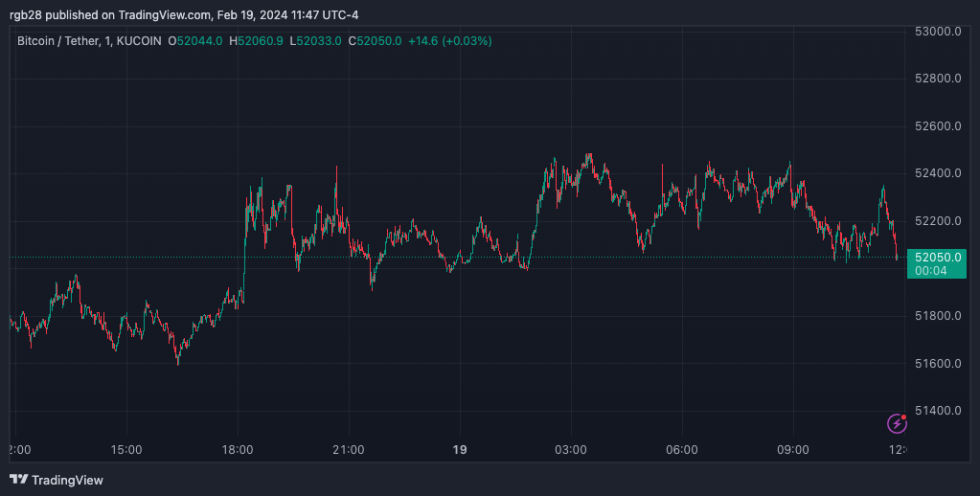In a year full of important elections around the globe, many candidates have approached their 2024 electoral campaigns with Bitcoin and crypto investors in mind. A local report suggests that the South Korean ruling party is aiming to gain the crypto voters’ support with new considerations presented during a meeting at the National Assembly this Monday.
South Korea Reviews Crypto Investment And Bitcoin ETFs
According to a report from News1, a local news media outlet, the South Korean ruling party is considering a crypto-related general election pledge to attract crypto investors’ support for the upcoming April elections in the country.
Yoon Jae-ok, floor leader of the People Power Party, spoke during the General Meeting of Lawmakers held on Monday afternoon at the National Assembly in Yeouido, Seoul.
The pledge includes several promotion measures for the crypto industry, such as allowing virtual assets exchange offerings (IEO), corporate virtual asset investment, and spot Bitcoin exchange-traded funds (ETFs).
During the meeting, the People Power Party announced it’s considering a plan to allow investment products approved by foreign countries like the US into the country. The trading of such products, like spot Bitcoin ETFs, through local security firms is currently blocked due to the ‘ban’ imposed by the domestic financial authorities.
Similarly, financial companies and corporations are currently not allowed to invest in virtual assets, a measure that the Korean ruling party is actively reviewing, according to the local news outlet.
The report also specifies that financial companies must ensure investors’ protection by preparing appropriate measures when handling crypto-based investment products.
During the meeting, the ruling party discussed the best action plan to allow corporate crypto investment in South Korea. At first, they plan on allowing “investment in virtual assets to companies for asset management purposes” before gradually permitting it to “corporations where the safety of customer funds is important,” like banks and insurance companies.
Accordingly, the People Power Party has also planned to introduce the IEO, which is one of President Yoon Seok-yeol’s national tasks, as the report explains.
IEO is a new virtual asset sold through an exchange, with the intention that a minimum ‘safety device’ can be provided through a virtual asset exchange that has been reported to the financial authorities.
Electoral Campaigns Aim For Crypto Voters
According to the report, The People Power Party is looking into the promotion of the “entire virtual asset industry” in hopes of capturing the South Korean crypto investors’ votes for the coming general elections.
Some electoral campaigns, like former republican US candidate Vivek Ramaswamy, aim for better regulations in the sector; others, like Bukele’s campaign for his second term in El Salvador, doubled down on Bitcoin and cryptocurrency adoption.
In the case of South Korean elections, the ruling party has promised to create a ‘Digital Asset Committee’ that would have enough authority to propose laws and impose sanctions. This decision comes after the stipulated establishment of a dedicated organization under the Financial Services Commission.
The current ‘Virtual Asset Under Protection Act,’ scheduled to be implemented in July of this year, specifies the creation of a virtual asset organization in the country. However, this organization’s authority would be limited to an “advisory” level.
Due to this, the People Power Party is looking into elevating the virtual asset organization to “a role similar to the ‘Securities and Futures Committee’ established within the Financial Services Commission.”
Additionally, the ruling party has plans to resolve the discrepancies in the existing policies related to cryptocurrencies and digital assets in general. The introduction of a virtual asset blind trust is also being considered, “thoroughly managing it to the same level as stocks for National Assembly members and high-ranking public officials.”

by Rubmar Garcia via Bitcoinist.com
Comments
Post a Comment